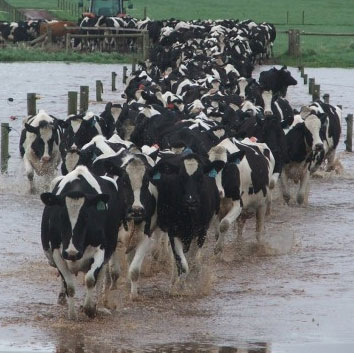FSA statement on TB risk from meat
- Like
- Digg
- Del
- Tumblr
- VKontakte
- Buffer
- Love This
- Odnoklassniki
- Meneame
- Blogger
- Amazon
- Yahoo Mail
- Gmail
- AOL
- Newsvine
- HackerNews
- Evernote
- MySpace
- Mail.ru
- Viadeo
- Line
- Comments
- Yummly
- SMS
- Viber
- Telegram
- Subscribe
- Skype
- Facebook Messenger
- Kakao
- LiveJournal
- Yammer
- Edgar
- Fintel
- Mix
- Instapaper
- Copy Link
Posted: 1 July 2013 | Food Standards Agency | No comments yet
The Food Standards Agency is highlighting its meat inspection process following reports in the media about TB risks from meat…


The Food Standards Agency is highlighting its meat inspection process following reports in the media about TB risks from meat.
The Agency’s meat hygiene inspectors check all meat before it enters the food chain to make sure it is fit for people to eat. Where inspection reveals any lesions caused by TB in more than one organ or region of a carcass, it is declared unfit for human consumption and destroyed.
When a TB lesion has been found in the lymph nodes of only one organ or part of the carcass, that organ or part of the carcass and the associated lymph nodes are removed and destroyed. The remaining meat is considered safe to enter the food chain.
The FSA is confident that the inspection systems in place are robust, otherwise we would not allow this meat into the food chain.
According to the European Food Safety Authority, the risk of anyone catching bovine TB through eating meat is ‘negligible’. When people do contract bovine TB, it is usually through drinking unpasteurised milk or through prolonged contact with an infected animal.
This view is supported by the Advisory Committee on the Microbiological Safety of Food (ACMSF), the independent panel of experts that advises the Agency in this area, following its own risk assessment in 2010.
In addition, there is no documented case where a person has caught TB through eating meat.
Science behind the story
There’s more background to this statement by FSA veterinary director Liz Redmond on our chief scientist’s blog.
Related Items
Advisory Committee on the Microbiological Safety of Food (ACMSF)More about the committee
EFSA calls for change to meat inspections




